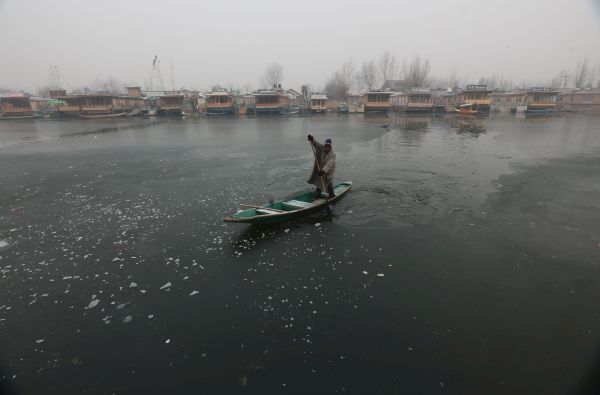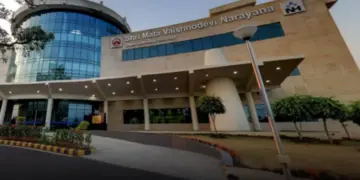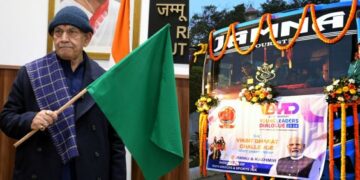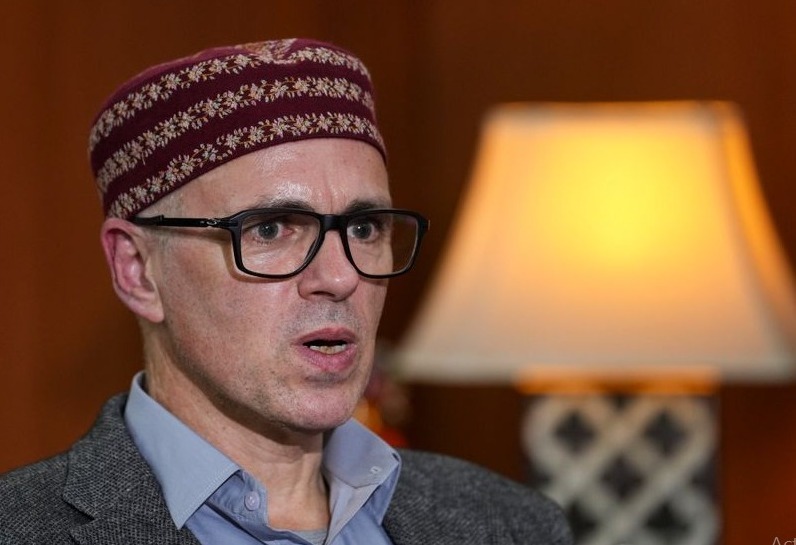Srinagar: Chillai Kalan, the 40-day period of the harshest winter, commenced in Kashmir on Saturday with Srinagar experiencing its coldest December night in five decades at minus 8.5 degrees Celsius, according to the meteorological department.
Minimum temperatures dropped several notches below the freezing point in other parts of the valley as well.
In Srinagar, the temperature came down to minus 8.5 degrees Celsius on Friday night from minus 6.2 degrees Celsius the previous night, the meteorological department said.
It was Srinagar’s coldest December night since 1974, when the city recorded a low of minus 10.3 degrees Celsius, and the third coldest since 1891.
Srinagar’s lowest-ever minimum temperature in this month was minus 12.8 degrees Celsius on December 13, 1934.
The intense cold led to the freezing of several water bodies, including parts of the Dal Lake here, and water supply lines in many areas of the city and elsewhere in the valley.
South Kashmir’s tourist resort of Pahalgam recorded a low of minus 8.6 degrees Celsius while the skiing resort of Gulmarg in north Kashmir recorded a low of minus 6.2 degrees Celsius.
Konibal, a hamlet on the outskirts of Pampore town, was the coldest weather station in the valley with a minimum temperature of minus 10.5 degrees Celsius.
The minimum temperature settled at minus 8.2 degrees Celsius in Qazigund, minus 7.2 degrees Celsius in Kupwara and minus 5.8 degrees Celsius in Kokernag.
This was Kupwara’s lowest December temperature since 1998 and the ninth lowest ever in this month.
The meteorological office has forecast mainly dry weather till December 26 with a possibility of light snowfall in the higher reaches of the valley on the intervening night of December 21-22.
Light snow over the higher reaches is also possible from the afternoon of December 27 to the forenoon of December 28. The weather is likely to be mainly dry on December 29-30 while light snowfall is expected in the higher reaches on New Year’s Eve, it said.
The weather office said the cold wave at isolated places would continue over the next few days.
During the 40 days of ‘Chillai-Kalan’, the chances of snowfall are the maximum and the temperature drops considerably.
‘Chillai Kalan’ will end on January 31 next year but the cold wave continues in the valley as it is followed by a 20-day ‘Chillai-Khurd’ (small cold) and a 10-day ‘Chilla-Bachha’ (baby cold). (With inputs from PTI)
DHSK issues health advisory to combat cold weather illness
The Directorate of Health Services Kashmir (DHSK) Saturday issued a detailed advisory for the safety of the public, particularly high-risk groups, from health risks during this winter.
The advisory outlines potential health risks, symptoms and measures to mitigate the impact of extreme cold weather.
The advisory defines a cold wave as a weather phenomenon marked by a significant drop in air temperature, sometimes accompanied by frost and icing.
DHSK urged people to stay updated and adequately prepared about the weather patterns and district-specific warnings.
Among those identified as high-risk groups are homeless individuals, the elderly, economically disadvantaged people, disabled individuals, pregnant and lactating mothers, children, outdoor workers, managers of night shelters, farmers, and individuals who use illicit drugs. “These groups are particularly vulnerable to the adverse health effects of prolonged exposure to extreme cold.”
The DHSK further warned that intense cold can lead to serious health conditions such as hypothermia, frostbite, and other cold-related injuries like immersion foot and chilblain.
“Hypothermia, a medical emergency, can be life-threatening if not addressed promptly. Symptoms of hypothermia in adults include shivering, memory loss, exhaustion, slurred speech, confusion, drowsiness, and fumbling hands,” it reads.
The advisory further reads that among the infants, it manifests as bright red, cold skin and low energy.
It further stressed upon the importance of immediate action, including moving the affected person to a warm shelter, removing wet clothing, and warming their body with blankets or skin-to-skin contact. Emergency medical attention is essential for severe cases.
DHSK has recommended several preventive measures to prepare for and combat the cold wave. These include stocking adequate winter clothing and emergency supplies such as food, water, and medicines.
“People are advised to wear multiple layers of loose-fitting, warm clothing, cover extremities like the head, neck, hands, and feet, and eat a healthy diet rich in Vitamin-C to boost immunity. Drinking warm fluids regularly and keeping the skin moisturized is also advised to maintain body heat and protect against dryness,” it reads.
DHSK in the advisory urged the public to avoid prolonged exposure to cold. It also asked the public to refrain from consuming alcohol and not ignore signs of shivering, which indicates the body is losing heat.
The directorate further asked the locals to remain vigilant for symptoms of frostbite or hypothermia and suggested to seek medical attention immediately if such symptoms occur.
RTO Kashmir issues advisory for motorists, riders
The Regional Transport Office (RTO) Kashmir Saturday issued a detailed advisory for motorists and bikers to ensure safe travel in view of extreme subzero and freezing temperature in the valley.
The advisory, as per the news agency KNO, issued by the RTO Kashmir states that the guidelines issued highlight the precautionary measures to avoid accidents and ensure safety on icy and foggy roads.
The advisory suggested avoiding unnecessary travel, especially during early mornings and late nights when temperatures are at its lowest. It has asked to stay updated on weather conditions and traffic advisories before traveling.
It also advised to allow additional travel time to avoid rushing, stating that roads may be slippery.
For vehicle preparation, the advisory has highlighted the use of winter or all-season tires for better grip and to ensure the coolant system has sufficient antifreeze to prevent freezing.
“Test vehicle batteries for performance in cold weather. Check that all lights and wipers are functional. Keep fuel tanks at least half full to prevent freezing,” states the advisory.
Sharing driving and riding tips, the advisory suggested motorists and riders to drive slowly and to maintain a safe distance to avoid skidding. It has also been suggested to avoid sudden movements while accelerating, braking, or steering.
“Use low-beam headlights during foggy conditions. Refrain from overtaking on icy or foggy roads,” states the advisory.
The advisory has advised bikers to wear thermal gear and anti-fog visors.
To meet emergencies, the advisory has advised motorists to carry an emergency kit, including first-aid supplies, a flashlight with extra batteries, a blanket, non-perishable snacks, water, and an ice scraper.
The advisory has also shared helpline numbers—7780917148, 9765079102 for those travelers seeking assistance. (KNO)









